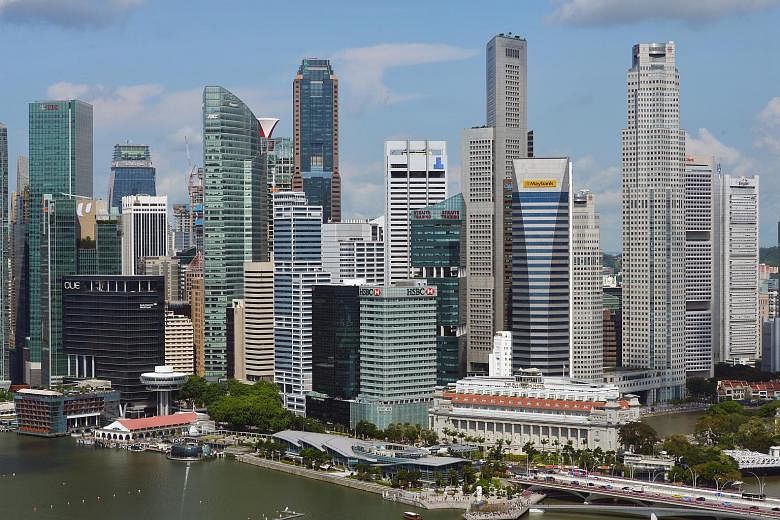SINGAPORE - The economy grew 1.8 per cent in the second quarter, slightly faster than an earlier estimate of 1.7 per cent but significantly down from the first quarter's 2.8 per cent expansion, according to Ministry of Trade and Industry data released on Tuesday.
The ministry also said it has narrowed its growth forecast for the Singapore economy this year, amid slowing growth in China and an uneven global economic recovery.
The Singapore economy is now expected to grow between 2 and 2.5 per cent this year, from an earlier forecast of 2 to 4 per cent.
The final GDP figure for the second quarter was stronger than the 1.5 per cent growth forecast in a a Reuters poll of economists.
On a quarter-on-quarter seasonally-adjusted annualised basis, the economy contracted by 4.0 per cent in April-June period, a reversal from the 4.1 per cent growth in the preceding quarter.
Growth was dragged down by a sluggish manufacturing sector, which contracted 4.9 per cent over the same period last year. The sector, which makes up a fifth of the economy, was weighed down by declines in the transport engineering and biomedical segments.
Meanwhile, the strongest performer was the finance and insurance industry, which expanded 7.1 per cent after growing 7.8 per cent in the preceding three months. This was due in large part to a strong showing in the fund management segment.
The global economy performed weaker than expected in the first half of this year, the ministry said.
While growth is expected to pick up gradually over the rest of the year in advanced economies like the United States, the outlook for Asean economies is less sanguine amid slowing growth in China.
MTI noted three key downside risks in the external economic environment.
In China, there is the risk of a sharper-than-expected correction in the real estate market, which could have significant negative spill-over effects on construction and real estate investment activities, it said. The recent sharp correction in China's stock market has also heightened the risks to China's growth, whereby consumer sentiments and spending there could be adversely affected if the correction in the stock market worsens, it added.
In the euro zone, while Greece has averted the immediate risk of an exit from the bloc, there is continuing political uncertainty and the crisis could flare up again if the Greek government fails to adhere to the bailout terms, said MTI.
Thirdly, with low commodity prices, the appreciation of the US dollar and anticipated normalisation of US interest rates, regional countries could face capital outflows and added pressures on their currencies and asset markets, said MTI.


